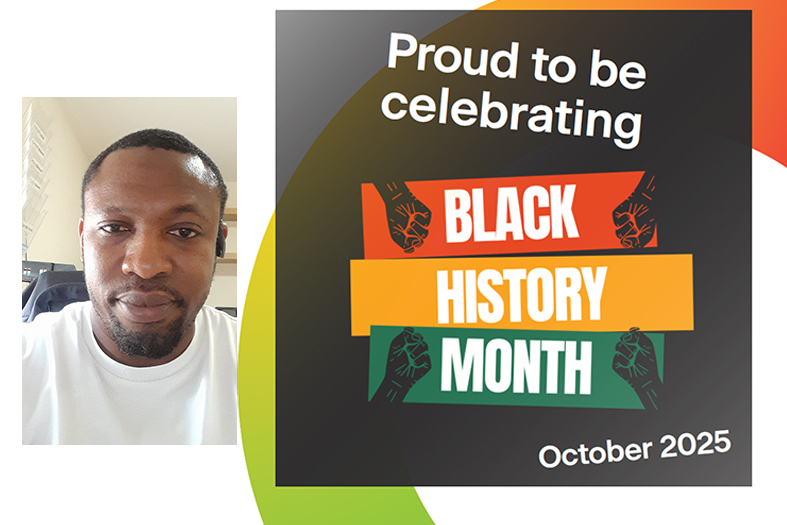Voices of Black History Month

Voices of Black History Month
Abayomi Alao (Yomi), Senior Practitioner
In celebration of Black History Month, we’re speaking with Advance customers and team members to understand what the commemorative month means to them.
To kick off Voices of Black History Month, Abayomi Alao, known as Yomi, told us about why Black History Month is important to him and why he thinks prioritising inclusivity beyond the month is necessary.
Yomi has worked for Advance since 2013 and transitioned into a full-time role in 2019. Yomi has experience working in domiciliary care, supported housing and mental health, prior to working at Advance.
What does Black History Month mean to you?
I moved to the UK around 14 years ago, from Nigeria. Black History Month isn’t celebrated there as much as it is here – I think people take it for granted that everyone around them looks like them. Spending time in the UK has made me appreciate Black History Month, as it makes me feel much more at home. Where I come from (Lagos), we have different tribes, so there’s diverse communities in a specific area. Where I live in London, I mix with lots of people from different backgrounds: Asian, Black people, White people, so being able to celebrate Black groups among all the diversity I see and experience every day gives me a sense of recognition and identity – I feel accepted.
Why is it important to celebrate Black history in our communities?
I feel Black History Month is needed because the world is always changing and evolving, particularly politically, economically and socially. It’s good to be able to connect with others and make sure everyone feels safe in their identities. When these events are celebrated, it ensures everyone feels comfortable and welcomed.
There are lots of immigrants working in the health and social care sector, the NHS particularly, so it’s important to celebrate them especially so they feel encouraged in their roles. Making sure inclusivity is celebrated every year will mean that people’s efforts and contributions are recognised.
How does Advance make you feel included and valued?
Advance gives me, and my colleagues, the opportunity to be able to dream and aspire to achieve beyond our roles. While I was working at Advance in a temporary position, I was given the opportunity to apply for a permanent position. Advance doesn’t concentrate on the colour of our skin – jobs are given based on our ability and knowledge. I already had my Level 3 diploma and Advance give me the chance to work towards my Level 5, which I now have. I wouldn’t have had that opportunity if I hadn’t secured my current role and the qualifications have given me leverage to continue to progress my career.
What does inclusivity look like to you?
Staff members are given different training programmes to help us understand the various backgrounds that people come from, which I think goes a long way in fostering unity, progress and collaboration with customers and their families, as well as colleagues. We spend so much time with customers, you’re more like family, so it’s good that we can understand their culture, gender and sexuality.
How can organisations continue to celebrate diversity and promote inclusion all year round, not just during Black History Month?
I think we could have a Diversity Day, where people could come into work and wear their cultural outfits and bring in food that represents their heritage or culture – I’d love to bring in some Jollof Rice and I’d love to try foods and snacks from other countries and cultures too. This way, people could share their culture with other colleagues and promote their background